
Community-Partnered Initiatives
The Environmental Collaboratory's community-partnered initiatives co-fund, co-design, and co-implement on-the-ground solutions with community partners to drive systemic change that align climate, environmental justice with on-the-ground realities.
Initiatives Overview
The Environmental Collaboratory (TEC) has facilitated the establishment of a community coalition with 4 community-based organizations (CBOs), named the Philadelphia Climate Justice Collective (PCJC). PCJC members consist of Mantua Civic Association, SEAMAAC, Overbrook Environmental and Education Center, and Esperanza. Each group represents a diverse population, geographic region, and unique environmental concerns across Philadelphia. The purpose of PCJC is to develop a locally driven environmental just climate transition plan to address long-standing environmental issues. PCJC's focus is to establish a vision and a climate just transition plan, including policy and funding, technical assistance, and GIS Mapping.
The Environmental Collaboratory (TEC) serves as the academic partner of the Pennsylvania Climate Initiative. TEC's role is to assist with climate resilience implementation throughout the Commonwealth of Pennsylvania. TEC has been coordinating with the Energy Program Office of the Pennsylvania Department of Environmental Protection (PA DEP) on ways to align this effort with other ongoing technical assistance programs administered by the PA DEP.
The Delaware Route 9 Project is a coalition of organizations including, New Castle Prevention Coalition and Claymont Coalition for Environmental Justice, working on the highly overburdened industrial and residential communities on the east side of New Castle County, Delaware. This area lies within the Philadelphia region and will be served by The Environmental Collaboratory, Academy of Natural Sciences and Environmental Mapping projects. Given the substantial environmental inequities in this region and the lack of resources to address them, the communities in this region will be a high priority for Justice40 funding.
Climate disaster preparedness needs of community institutions in the most vulnerable communities is currently underway in the Philadelphia community of Eastwick, one of the lowest lying, most flood-prone sections of the city which experiences regular flooding. Upon request of the key community members, The Environmental Collaboratory has coordinated with the Office of Emergency Management (OEM) and the Office of Sustainability (OOS) through multiple discussions. Maya Hillis, a PhD student working on the project, has reviewed and synthesized community feedback data shared by OEM and OOS. After synthesis review, OEM and OOS shared notes outlining the efforts underway to address the main points brought up in community feedback. Maya has mapped these efforts, along with other initiatives outside of the city government, to connect the identified concerns with corresponding initiatives. This map has visually highlighted the overwhelming flood-related initiatives in Eastwick and helped identify the key concerns yet to be fully addressed.
Based on surveys that Drexel University conducted with Eastwick organizations and residents in 2021 and 2022:
- 93% of residents have experienced flooding at their residence or neighborhood which has resulted in median unreimbursed costs of about $25,000 with a quarter of residents incurring between $50,000 and $100,000;
- Over 50% of residents are not aware of flood emergency response plans, are not aware of where to evacuate; and
- About 90% of residents have identified the need for a formal evacuation plan.
The phase I efforts in the Eastwick community are directed assisting the development of a community based preparedness plan that that would align with and enhance the resources of the Philadelphia Office of Emergency Management.
Key Areas of Emergency Response [PDF]
Realizing Just Climate Transition
On May 18th 2023, The Environmental Collaboratory hosted its inaugural convening of partners. Following a welcoming by Drexel senior leadership and Executive Director Mathy Vathanaraj Stanislaus, community partners described the challenges and opportunities to advance just climate transition. Leaders who developed the “Green Living Plan for Philadelphia” described the platform for community-based climate investments. Colleagues at the Academy of Natural Sciences of Drexel University and Drexel faculty and students joined to enhance collaboration around initiatives related to realizing a just climate transition.
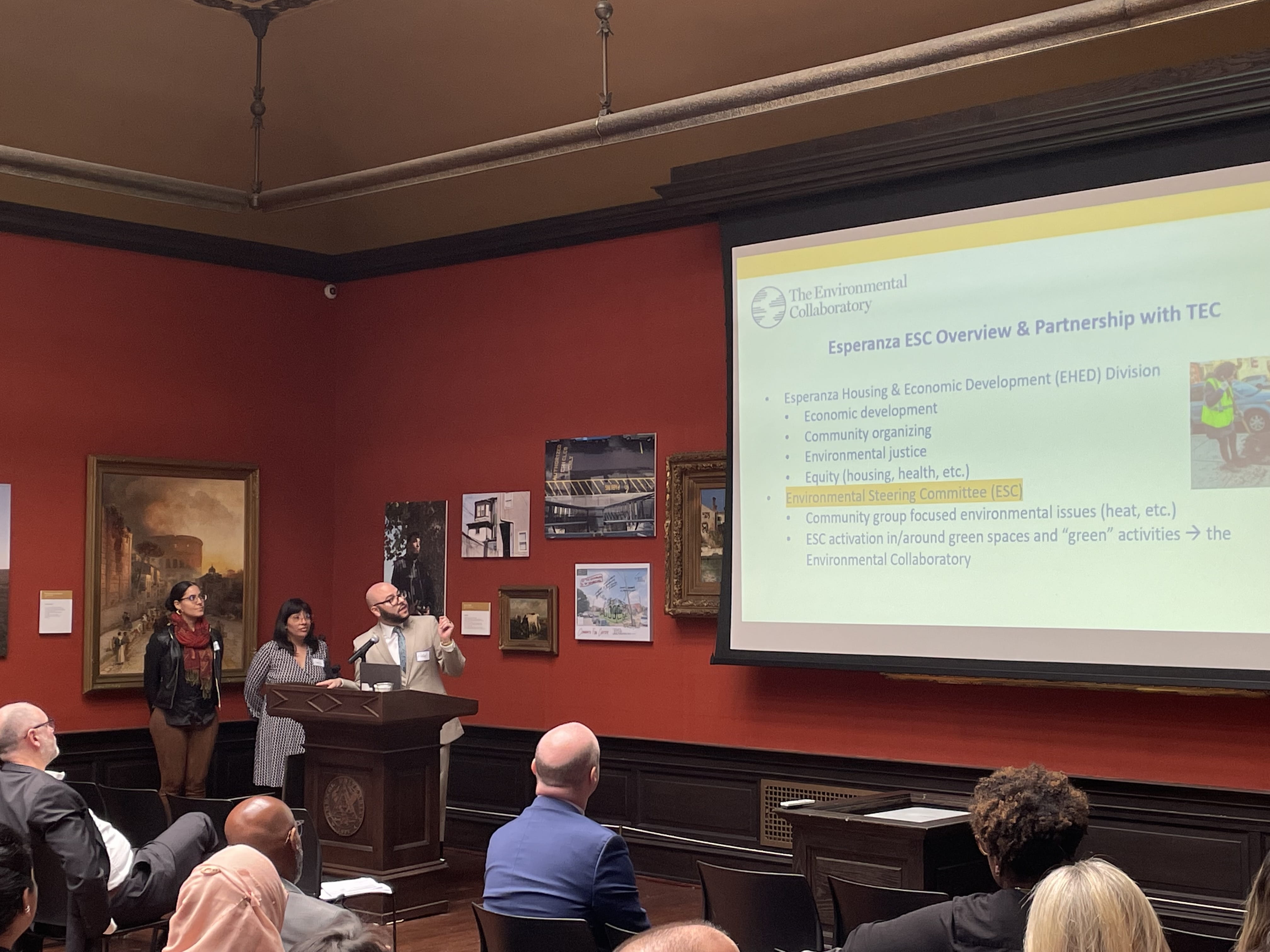
Partners from Esperanza
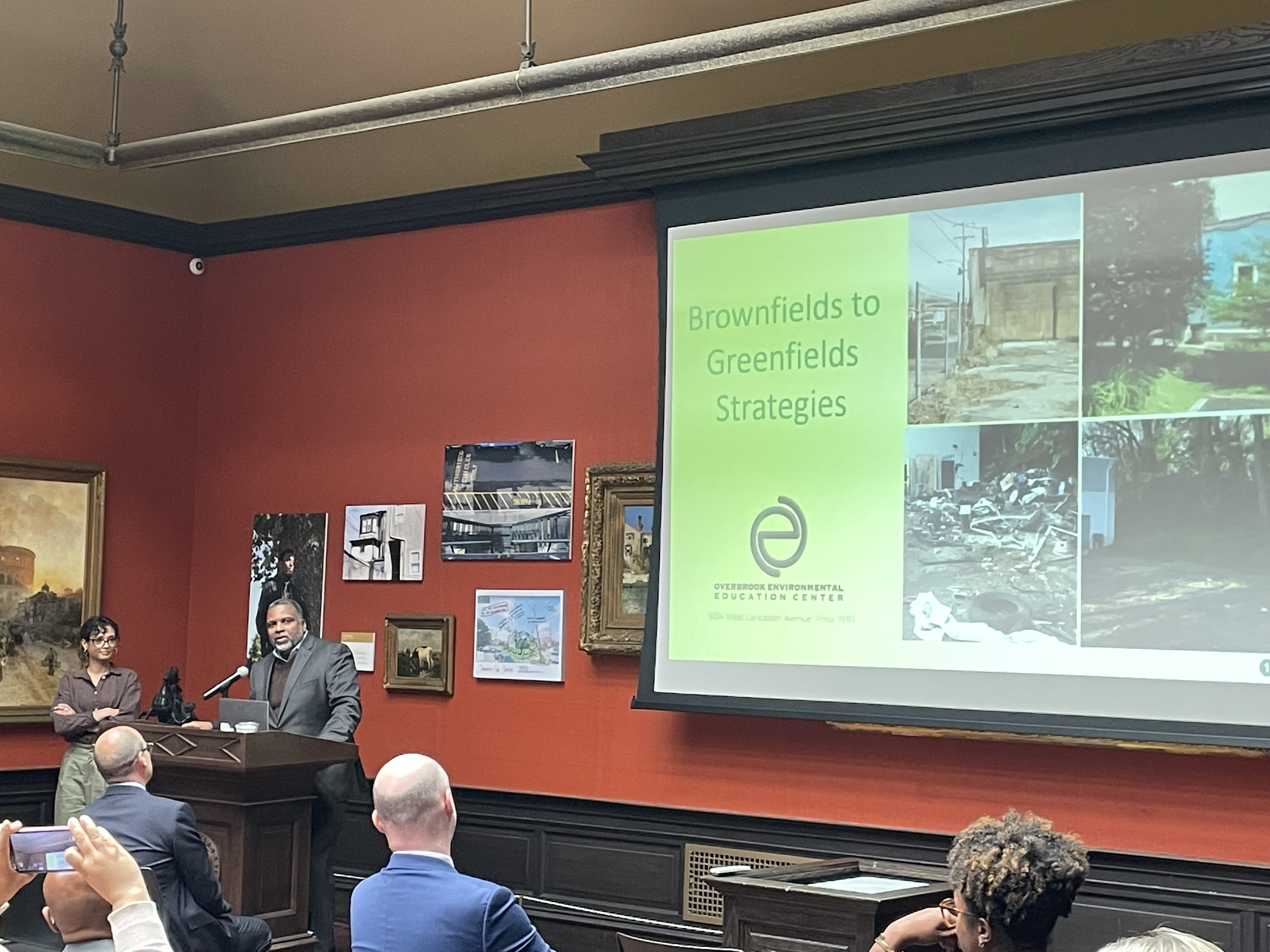
Partners from Overbrook Environmental Education Center
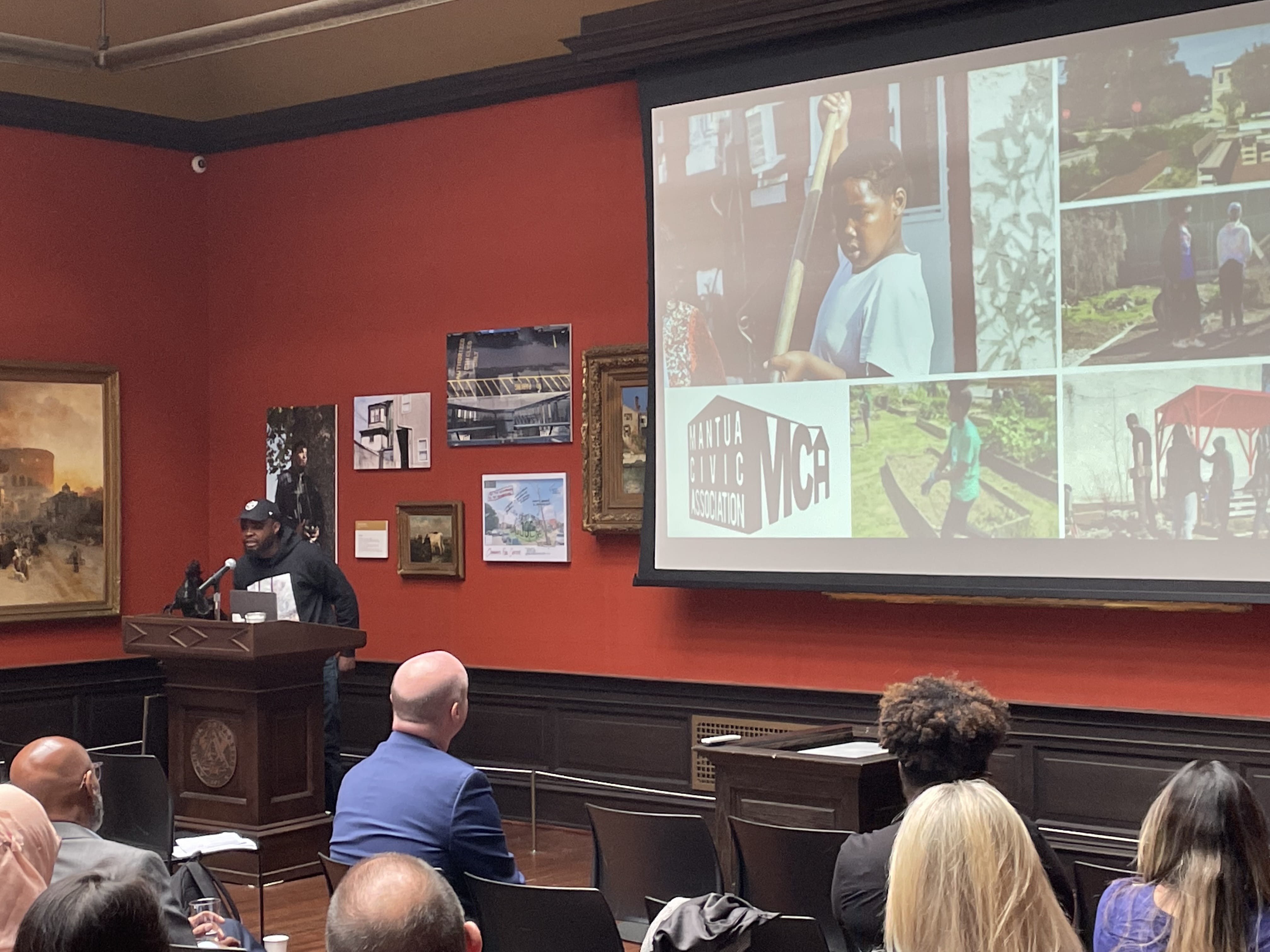
De'Wayne Drummond from Mantua Civic Association
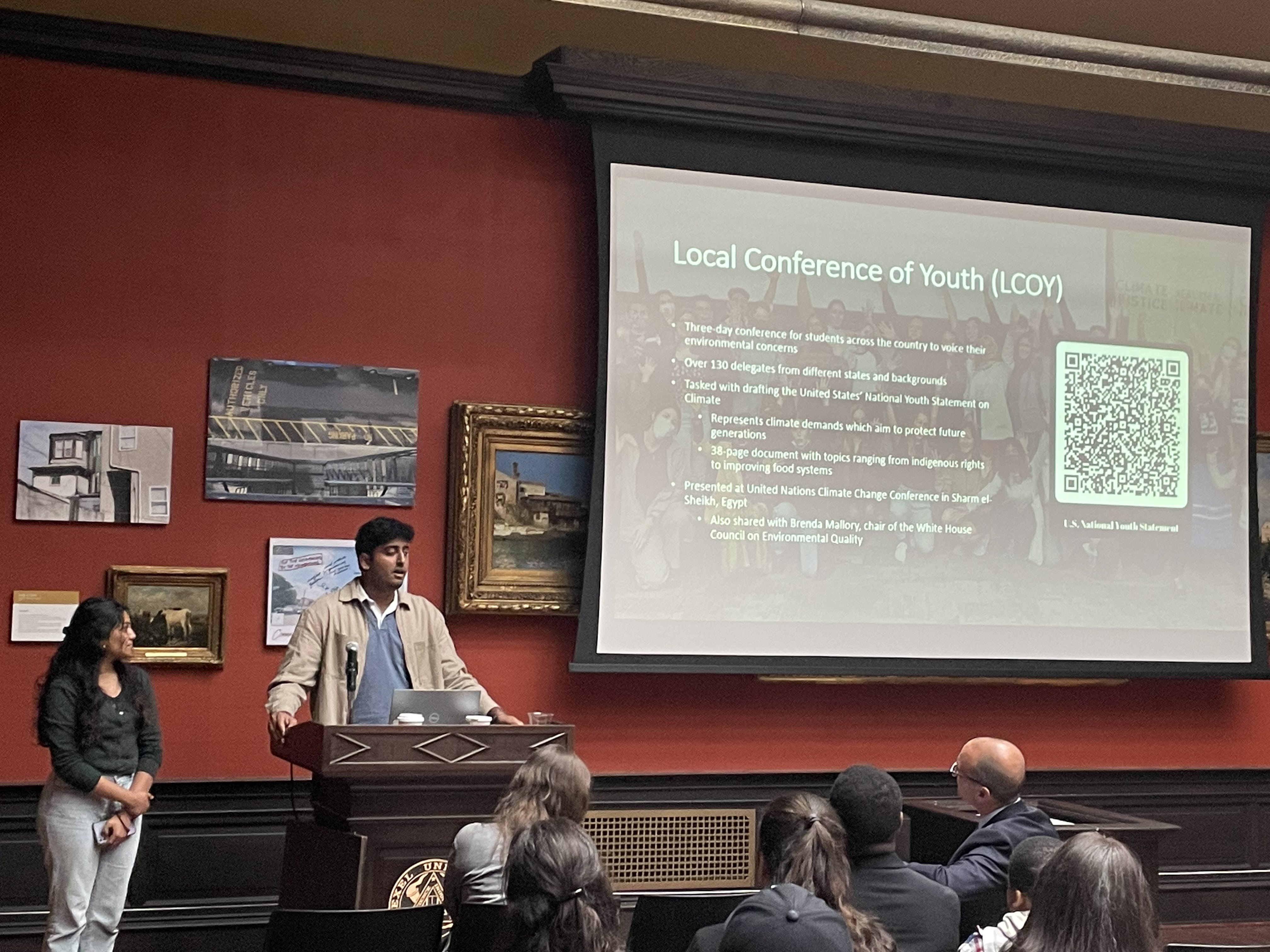
Drexel Students discussing the Local Conference of Youth
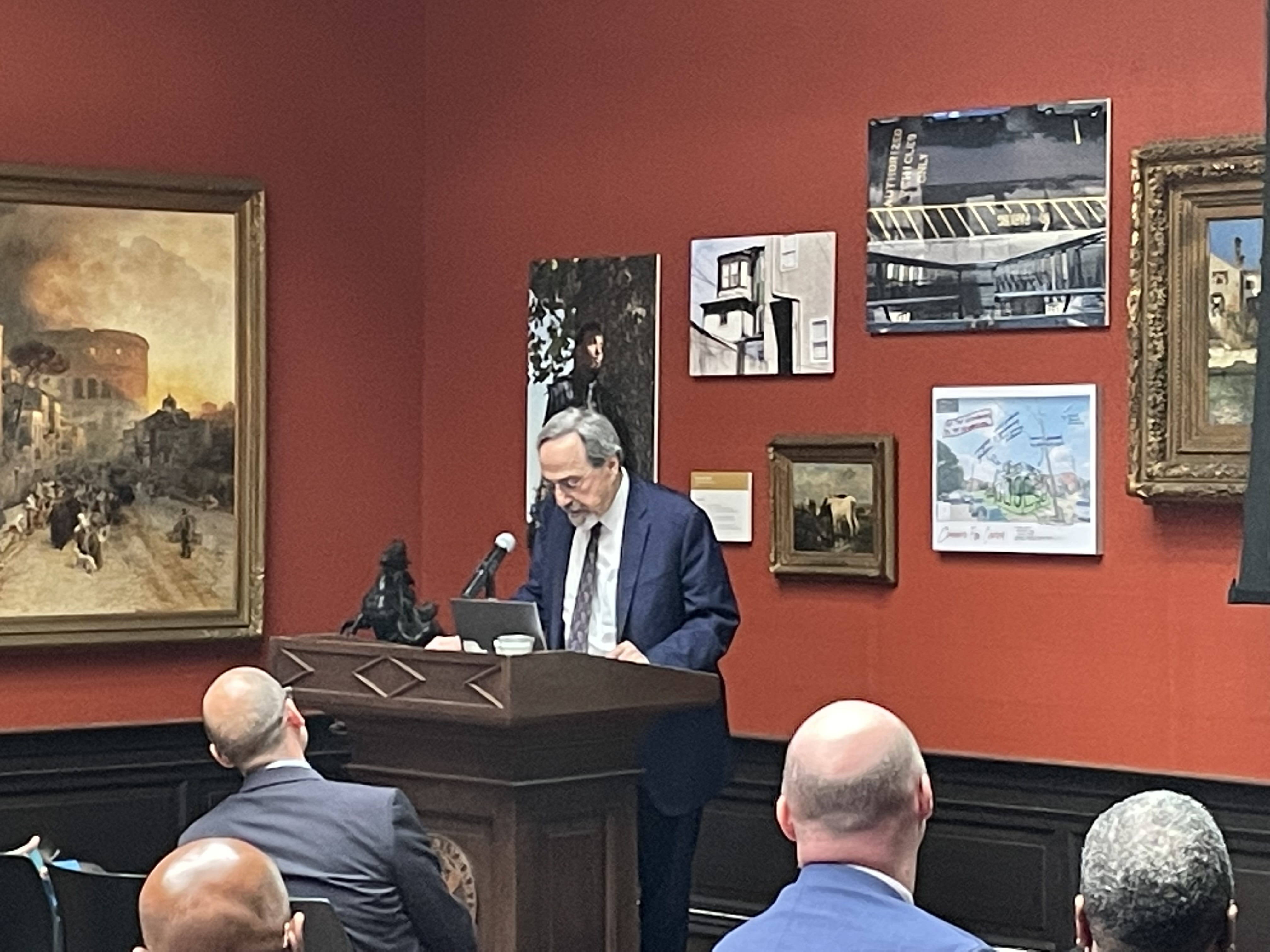
Michael Sklaroff from the Pennsylvania Climate Initiative
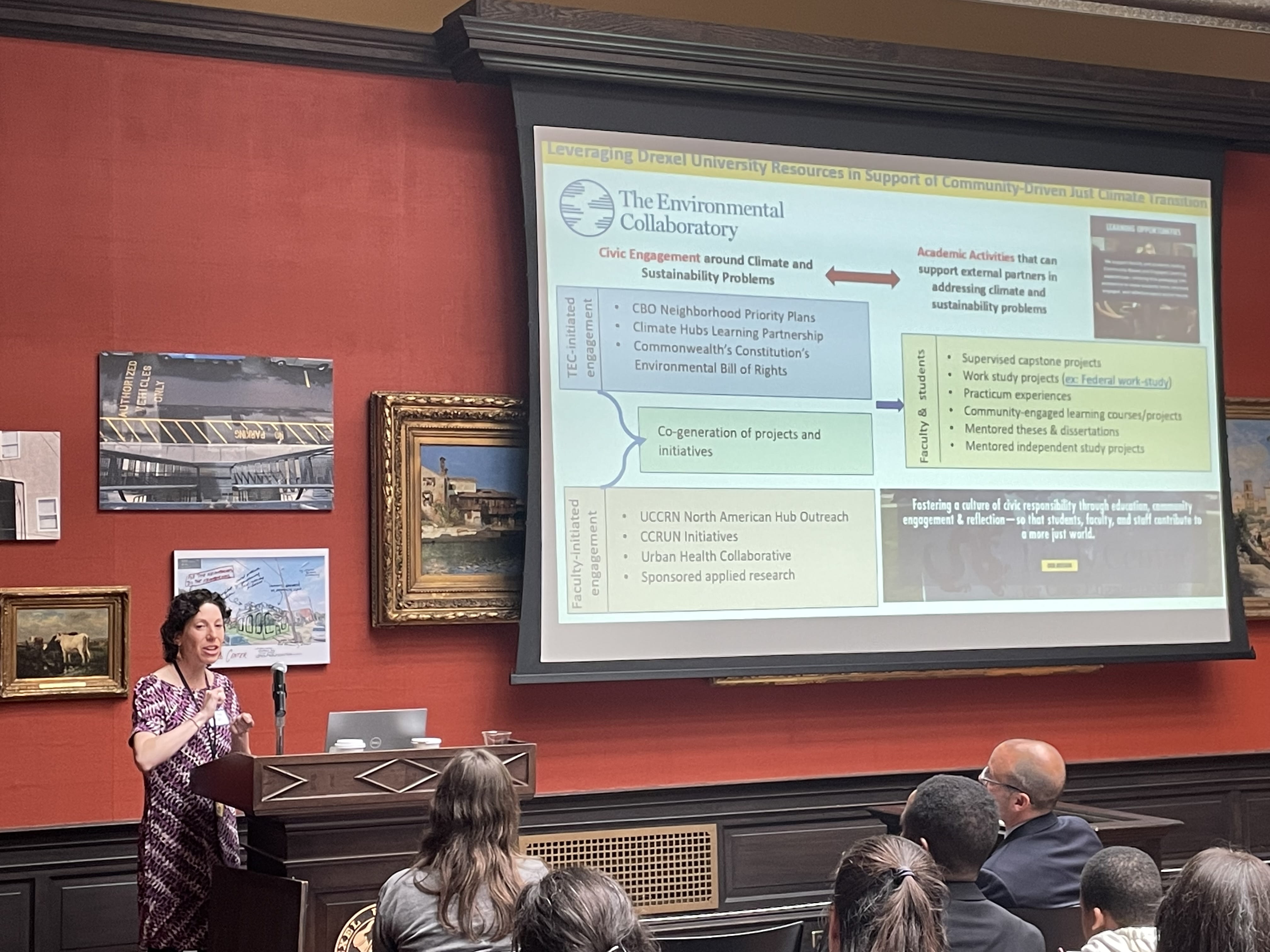
Mira Olsen, Faculty Liaison of The Environmental Collaboratory
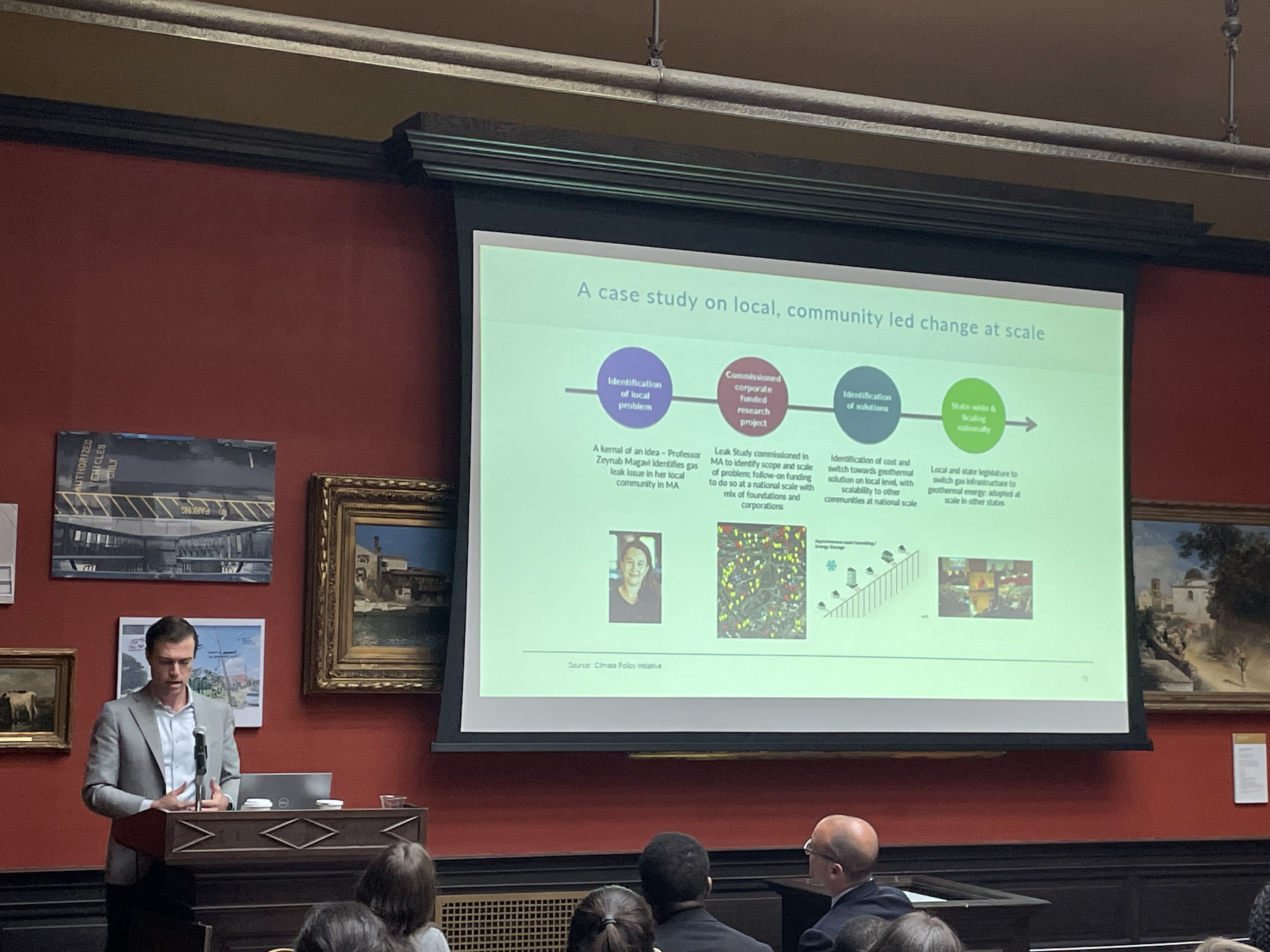
Mark Hays of Glenmede
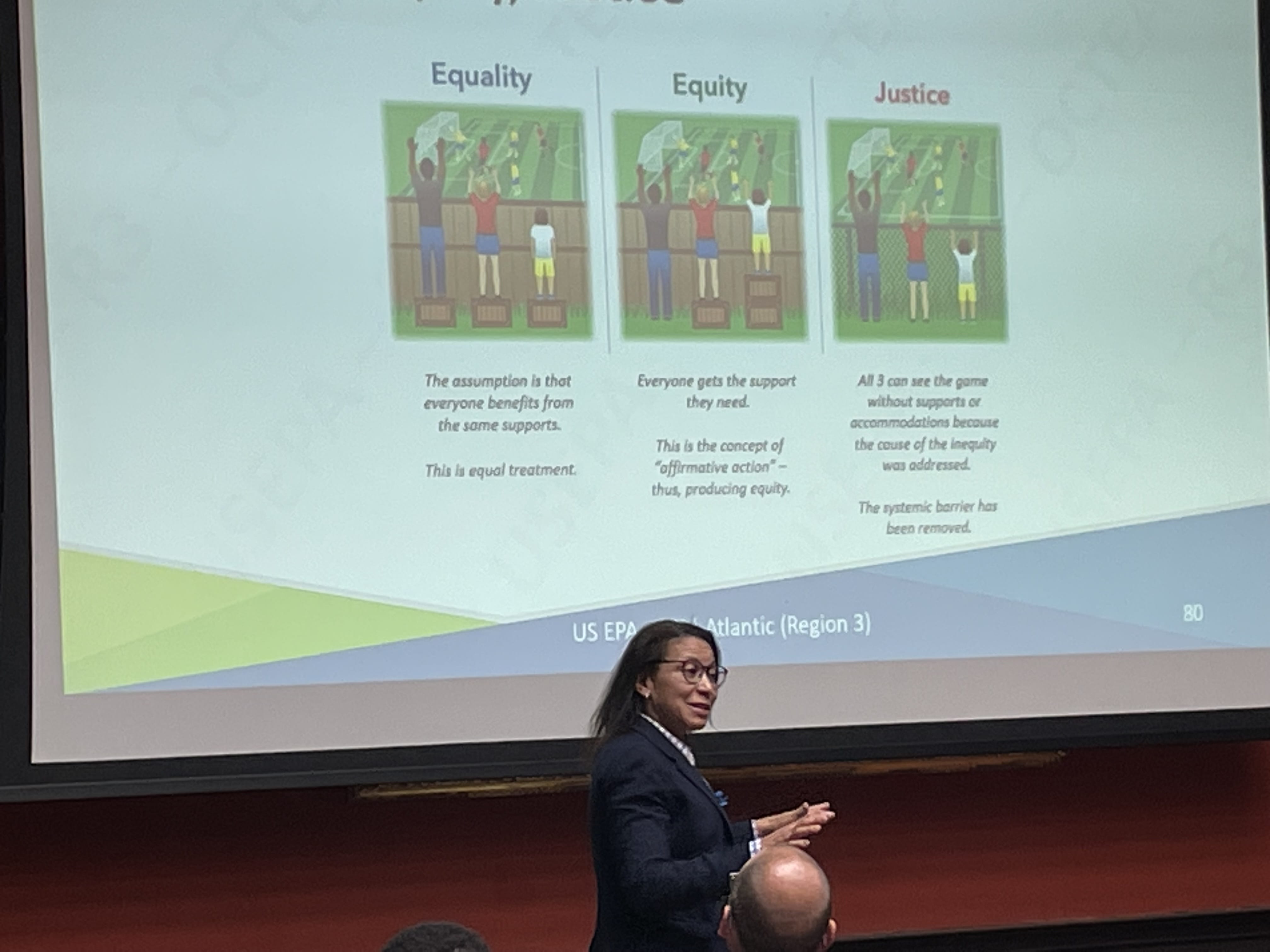
Samantha Beers of the Environmental Protection Agency